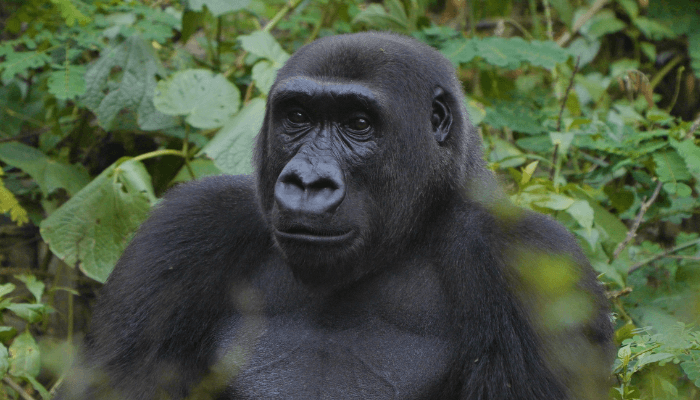Nigeria’s most endangered primates are once again in the spotlight as conservationists raise alarm over their shrinking numbers. Marking this year’s World Gorilla Day, the conservation organisation Wild Africa has called on Nigerians, from policymakers to local communities, to rally around the country’s last surviving Cross River gorillas before they vanish forever.
The Cross River gorilla, which inhabits the mountainous borderlands between Nigeria and Cameroon, is already listed as the most endangered ape species in the world by the International Union for Conservation of Nature (IUCN).
Globally, their population is thought to be fewer than 300. Of that number, an estimated 100 live in Nigeria, clinging to survival in just three protected areas in Cross River State: the Afi Mountain Wildlife Sanctuary, the Mbe Mountains, and the Okwangwo Division of Cross River National Park.
“These gorillas are part of our national heritage. Let us all come together to protect them, and ensure that this remarkable species continues to thrive in our country for future generations,” said Festus Iyorah, Nigeria Representative at Wild Africa. “We must act now to protect each and every one of Nigeria’s last Cross River gorillas.”
The warnings carry a historic echo. Cross River gorillas were long believed extinct after Nigeria’s civil war in the late 1960s. Their rediscovery in the 1980s, when a handful were sighted along the banks of the Cross River on both the Nigerian and Cameroonian sides, was hailed as a scientific triumph. But decades later, the species once written off is now perilously close to disappearing once more, this time not from war but from human encroachment.
The threats facing the gorillas are stark. Expanding farmland and settlements continue to eat away at their mountain habitats. Illegal hunting, often carried out with crude wire snares set for bushmeat, poses another danger. Though gorillas are rarely targeted directly, the traps intended for other animals frequently maim or kill them. As Wild Africa emphasises, Nigeria’s demand for bushmeat remains a serious challenge to gorilla survival.
While World Gorilla Day is intended to celebrate one of humanity’s closest relatives, it also underscores an uncomfortable reality: one of the rarest great apes is edging toward extinction. Conservationists argue that the fate of the Cross River gorilla should not be seen as a distant ecological concern but as a national responsibility.
Read also: FG moves to secure return of smuggled baby gorilla from Turkey
Protecting the species, experts say, is about much more than preventing extinction. Gorillas play a crucial role in maintaining the health of Nigeria’s remaining forests. Their feeding and nesting behaviours disperse seeds and sustain plant diversity, ensuring the regeneration of ecosystems that countless other species rely on. By saving them, Nigerians are also safeguarding biodiversity across one of West Africa’s richest natural regions.
The stakes also extend to human communities. Gorilla conservation offers a pathway to long-term economic sustainability through ecotourism. Countries such as Rwanda and Uganda have built thriving tourism industries centred on mountain gorillas, generating millions in foreign exchange while creating jobs for local residents. Nigeria’s Cross River gorillas, conservationists say, could offer a similar opportunity if their survival can be secured.
Yet translating opportunity into reality requires political will. Wild Africa has urged the government to strengthen enforcement of existing wildlife laws, update outdated statutes, and ensure that conservation policies reflect today’s challenges. Central to this push is the Endangered Species Conservation and Protection Bill 2024, which recently passed its third reading in the House of Representatives and is awaiting Senate consideration.
If enacted, the law would mark a watershed moment, providing stiffer penalties for wildlife crime, increasing protection for endangered species, and addressing the degradation of critical habitats. Conservation groups say the legislation could give Nigeria the legal framework it needs to confront the threats pushing species like the Cross River gorilla toward extinction.
Still, laws alone are not enough. Wild Africa argues that individuals and communities must also be part of the solution. Public education campaigns to reduce the demand for bushmeat, grassroots efforts to protect habitats, and advocacy for stronger policy measures are all vital. For a species with numbers so low, every gorilla matters, and every act of conservation counts.
“The gorillas symbolise resilience, but their survival depends on us,” Iyorah said. “Protecting them is about honouring our history, protecting our environment, and creating a sustainable future.”









